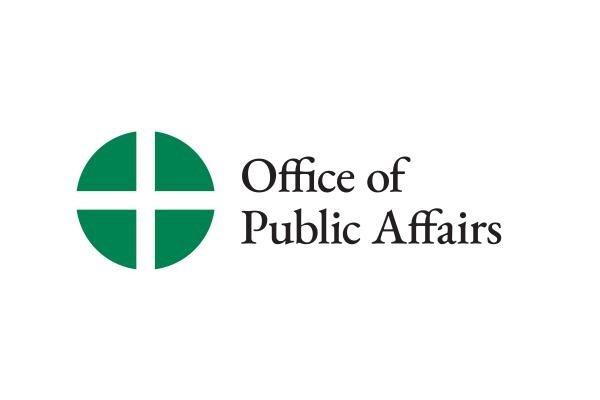Bishops' Delegation Finds Mission to Haiti both Disturbing and Hopeful
WASHINGTON—The United States Conference of Catholic Bishops (USCCB) sponsored a delegation July 26-August 2 to Haiti and the Caribbean region to examine the plight of Haitians impacted by the January 12 earthquake.
WASHINGTON—The United States Conference of Catholic Bishops (USCCB) sponsored a delegation July 26-August 2 to Haiti and the Caribbean region to examine the plight of Haitians impacted by the January 12 earthquake.
The mission, led by Archbishop Thomas Wenski of Miami and Bishop Nicholas DiMarzio of Brooklyn, New York, took place a little more than six months after the tragedy and focused upon the situation of vulnerable populations, particularly children, as well as reconstruction and economic development efforts. The delegation also traveled to the Bahamas and the Dominican Republic to assess the problems facing Haitians in those countries.
“It is clear that efforts to clean up and recover from the earthquake are progressing slowly,” said Archbishop Wenski. “However, the international community must remain steadfast in working with the Haitian government to reconstruct the country and strengthen its institutions. The survival and long-term future of the Haitian people are at stake.”
In addition to visiting with members of Haiti’s government, civil society and business sectors to discuss long-term development, the delegation paid special attention to the most vulnerable Haitians, especially women and children, visiting orphanages and camps in Port-au-Prince and the other countries.
“Children, especially those who have lost parents or are separated from them, remain at grave risk,” said Bishop DiMarzio. “Without a more concerted effort to protect them and find long-term solutions for their care, they will become even more vulnerable to criminal elements, including smugglers and human traffickers.”
In some of the camps, the delegation found that women remain vulnerable to violence and sexual assault. “Women, especially single mothers with children, are struggling to feed and protect their families, but at the same time are themselves exposed to gender-based violence. More must be done to enhance their security,” said Maria Odom, executive director of the Catholic Legal Immigration Network, Inc (CLINIC) and member of the delegation.
Despite the slow recovery and humanitarian challenges, the delegation saw seeds of hope in their mission. They visited a number of emergency, transitional, and development programs operated by Catholic Relief Services (CRS) and their local partners. CRS has operated in Haiti for 55 years, responding to the needs of the most vulnerable and supporting local development and strengthening of Haitian families.
In the aftermath of the earthquake, CRS additionally supports child protection programming, which includes family tracing to reunite separated children with their families, where possible, and the pursuit of durable solutions for orphaned children. CRS is also working throughout Haiti to assist the displaced located outside of the earthquake zone, and, through agriculture programs, to help them find the means to remain in the countryside.
Upon returning to the United States, the delegation recommended that several steps be taken by the U.S. government to help reunite and strengthen Haitian families and continue helping Haiti’s long-term development, including:
- Providing humanitarian parole to the family members, including children, of Haitians evacuated to the United States for medical treatment;
- Streamlining the process for post-earthquake arrivals applying for deferred action, so that they can work immediately in the United States and send remittances back to Haiti;
- Implementing a proactive asylum screening program for Haitians who are interdicted at sea, with appropriate adjudicators and language specialists aboard Coast Guard ships;
- Introducing best interest determinations for vulnerable children in shelters, which would include strengthened family tracing efforts; and
- Working with the Haitian government to increase their capacity to expedite clean up and reconstruction efforts and to provide security for Haitians, both in the earthquake area and along the border with the Dominican Republic;
- Working with the Haitian government to ensure the sustainable agricultural development of Haiti’s rural areas; and
- Working with the Haitian government to ensure the inclusion of civil society and the business sectors in efforts to decentralize the economy and the population’s access to jobs, health-care, and education services.
The delegation will be releasing a more formal and detailed report and recommendations in early September. The delegation included staff representatives from Migration and Refugee Services and the Office of International Justice and Peace Office of the USCCB; the Catholic Legal Immigration Network, Inc. (CLINIC), and Catholic Relief Services.
“This is a pivotal moment in Haiti’s history which requires cooperation and patience,” stated Archbishop Wenski. “Haiti is at a crossroads and it is crucial that the international community not lessen its commitment to the rebuilding process.”
In a collection taken up after the earthquake, Catholics in the United States contributed $80 million to recovery efforts in Haiti, which is being used to provide human needs assistance and to help restore Haiti’s infrastructure, including churches, schools, and clinics. CRS and the Secretariat for the Church in Latin America of the USCCB are administering the funds, in consultation with the bishops of Haiti.
“It will take time to make Haiti whole again, but it is important that the Haitian people and the children of Haiti—its future leaders—do not lose hope,” concluded Archbishop Wenski.
---

